Our experts
We have a wealth of expertise covering many research areas associated with Covid-19.
From virology and epidemiology, to the economic impact on businesses, supply chains, logistics, and food supplies, to the societal challenges from the impact on our mental health to the effects of social isolation and distancing.
Specialising in molecular virology, Professor Ball's research relates to emerging viruses, viral vaccines and treatments, and blood-borne infections. This includes Ebola, Zika, MERS Coronavirus, Influenza, Lassa Fever, HIV and Hepatitis C.
Since the start of the Covid-19 outbreak, Professor Ball has worked tirelessly with the media and journalists across the globe to ensure accurate and useful information is communicated to the public. He has been interviewed by outlets and publications around the world, including BBC News, the Tonight show, Channel 4 News, France 24, Al Jazeera, Radio 5, and Radio 4, to name a few.
Professor Matt Loose runs DeepSeq, the University's Next Generation Sequencing platform. DeepSeq are experts in sequencing and sequence data analysis, with a particular emphasis on long read sequencing technologies including Oxford Nanopore Technologies.
DeepSeq is part of a £20 million UK bid to sequence Covid-19. They are aiming to understand the epidemiology of Covid-19 at a genetic level by partnering with COG-UK, a national consortium of universities, public health laboratories and sequencing centres working together to generate and share sequence data to better understand our current situation.
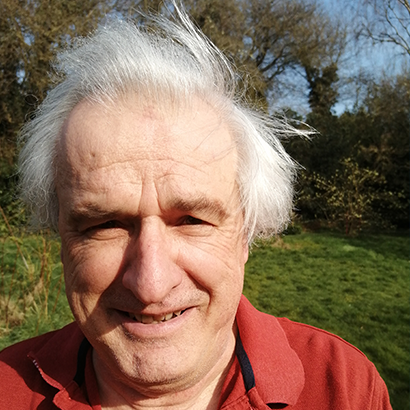
Professor Keith Neal
Professor Keith Neal has 30 years' experience controlling infectious diseases, such as SARS, MERS, swine flu and Ebola in the UK public health system. He also has 25 years of experience in the research of the epidemiology of infectious diseases at the University of Nottingham.
He has been involved in previous winter flu incidents and the swine flu response, and is familiar with the current published research and modelling predictions for Covid-19. Since the start of the current Covid-19 outbreak, he has worked with a wide variety of media and news outlets including Good Morning Britain, BBC Radio 2’s Jeremy Vine Show, and BBC News to keep the British public informed.
Hear Professor Neal discuss the risks of bringing the Covid-19 virus into your home in the video below.
Dr Bahar Tuncgenc is a Research Fellow in Psychology, with expertise in how people cooperate and form social bonds with each other starting from early years in life.
Since the Covid-19 pandemic started, she’s been researching on what motivates people to engage in the distancing advice from the health authorities, and how distancing affects people’s social relationships and mood.
She has been interviewed by BBC Radio Nottingham, BBC Radio Oxford, BBC News Oxford, ITV News Central and Notts TV. To join this ongoing study, please follow the link: bit.ly/3czjvcs.
Simon Gosling is Professor of Climate Risk in the University’s School of Geography with specific expertise in the effect of climate change on global water scarcity, river flows, flood risk, and human health.
During the coronavirus crisis, Professor Gosling has been offering expertise on the impact of the reduction of pollution as a result of the global lockdown and has co-edited a European Commission EU Science Hub report on climate change, highlighting the importance of climate actions while dealing with Covid-19, arguing that the the urgency of actions to recover from the Covid-19 crisis must not deter long-term climate objectives.
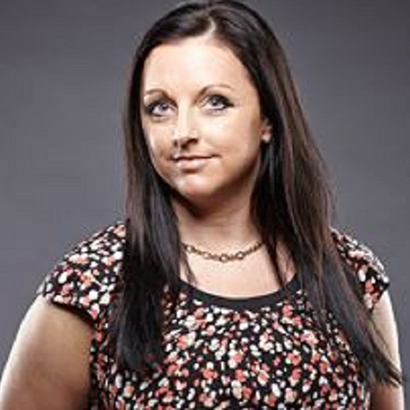
Dr Holly Blake
Dr Holly Blake is Associate Professor of Behavioural Science at the University of Nottingham. She is a chartered health psychologist with research expertise in workplace health and wellbeing, in particular the NHS workforce. She is engaged in national workforce evaluations, developing and testing complex interventions, and digital innovations for healthcare and education.
Holly was chair of the Work, Health and Wellbeing board at the University of Nottingham Faculty of Medicine and Health Sciences, and sits on the Staff Wellbeing Strategic Board at Nottingham University Hospitals NHS Trust.
She is currently engaged in several Covid-19 response studies looking at the impacts of the pandemic on employee health and wellbeing in the public and private sector.
Hear Holly discuss mental health tips for working from home in the below video.
Dr Charley Baker is an Associate Professor of Mental Health at the University of Nottingham. She has broad expertise in mental health and illness, with a particular interest in psychosis, self-harm, suicidality, anxiety and obsessive compulsive disorder – key difficulties that will be impacting not only on those with pre-existing mental health difficulties, but with society and people more broadly given the Covid-19 pandemic.
Dr Baker is heavily involved in nurse education at the University. She is known internationally for her work in the health humanities, particularly in the sub-fields of literature and mental health, and heavy metal music and self-harm. She has worked with a broad range of organisations including the NHS, BBC and different publishers.
Dr Nick Thomas is an Associate Professor in History, with a particular interest in social change in the post-war period.
Over the past decade his research has focused on protest movements in the 1960s. However, Dr Thomas is more than qualified to comment on the historical context of food rationing and state intervention to protect food supplies, and how that relates to the current situation we're experiencing with panic buying.
Dr Trautrims is our Rights Lab Beacon Associate Director and Associate Professor in Supply Chain and Operations Management.
He is an expert in supply chain management and sourcing, writing his PhD on retail store logistics.
In relation to Covid-19, he can comment on supply chains, food supply, supply disruptions and resilience, and why stockpiling is not panic buying but rational behaviour.
Dr Tarlinton is a registered veterinary surgeon with a PhD in microbiology. She previously worked on the original SARS coronavirus and has been involved in recent research on identifying novel coronaviruses in rodents with other colleagues. She has worked or lived through veterinary disease outbreaks in either a clinical or research capacity, including the 2001 foot-and-mouth disease and 2012 Schmallenberg virus outbreak.
Dr Tarlinton's research also focuses on retroviruses or zoonotic and emerging diseases in a variety of species including koalas, dogs, red squirrels, sheep and people, as well as how population genetics interacts with infectious disease risk. Her other interests include soap and water versus disinfectant to prevent infection, how the canine coronavirus is unrelated to the human one, and why face masks don’t work.
Professor Aoife Nolan is an internationally recognised expert on human rights, including the right to health. In addition to her academic work, she is a member of the Council of Europe (COE) European Committee of Social Rights.
Her research is particularly concerned about the extent to which national and supranational responses to the Covid-19 outbreak conform, or not, with human rights law. Specialise areas of comment include:
- the right to health – the provision of appropriate healthcare services, the obligation to provide protection to health workers, and to design and resource public health systems adequately
- the right to education – school/university closures
- the right to food – of vulnerable people self-isolating, relying on foodbanks, and children who can't access free school meals
- the right to housing – of tenants unable to pay rent, homeless people, and disabled people’s rights
Mr Kerry is a chartered physiotherapist and a co-founder of the global #MovementForMovement community of practice, working collaboratively with international physical activity organisation Exerciseworks.
He is a strong advocate of evidence-based physical activity and exercise for all. During the coronavirus-19 outbreak, billions of people will be self-isolating and their usual physical activity and exercise behaviours will be significantly challenged. Paradoxically, it is precisely during this outbreak that people need to keep as fit, healthy, and strong as they possibly can as we know that response to disease is highly dependent on our physical health status. This is why QuaranTrain has been launched, a one-stop resource portal to daily advice on how to maintain physical activity and do the right sort of exercises while self-isolating.
Hear Roger talk about the importance of exercise in lockdown and how to keep fit while the gyms are closed in the video below.
A Professor of Psychology, Professor Nicola Pitchford specialises in child development and education. She is particularly interested in how mobile technologies, such as handheld tablets, can support children’s learning of core foundational skills, such as literacy, numeracy and handwriting.
With the announcement of school closures across the UK in relation to Covid-19, digital technologies could provide a source of ongoing education for UK children, if they can access high-quality educational apps. Professor Pitchford and her team can provide advice to parents on how to choose suitable resources for supporting children to learn while they are at home.
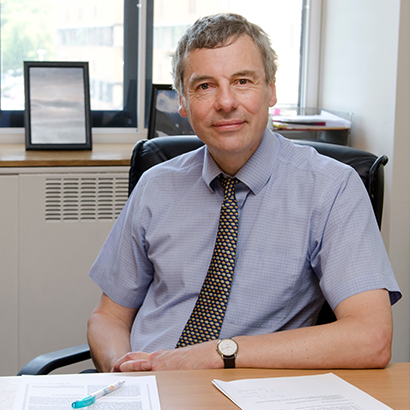
Professor Ian Hall
Professor Ian Hall is part of our School of Medicine, the Director of NIHR Nottingham Biomedical Research Centre, an NIHR Senior Investigator, and a Fellow of the Academy of Medical Sciences.
He works as a respiratory physician at the Nottingham Universities Hospital NHS Trust, and is involved both with clinical service delivery and co-ordinating research for patients with a wide range of lung diseases including Covid-19.
Dr Paul Smith is an Associate Professor in French and Francophone Studies, specialising in contemporary French politics and institutions, and French history in the 19th and 20th centuries. He is particularly interested in the French Senate, Feminism in France 1914-1945, French local government, and contemporary French politics in general.
He is a regular contributor on French politics to The Conversation and a variety of other online publications, and has also made regular contributions to TV, including France 24, TRT World and Al Jazeera. Given his background, Paul can comment on the French response to Covid-19 and French politics around the disease.
Dr Hutchings is an Assistant Professor of Religious Ethics and a sociologist of digital religion. He is interested in the relationship between religion, media and culture, with particular emphasis on digital forms of Christianity.
His research has included studies of online worship; digital evangelism and formation; online community; digital publishing and e-reading; apps and games; and death and dying. In relation to Covid-19, Dr Hutchings can comment on online worship, the use of digital media in bereavement and the digital footprint after death.
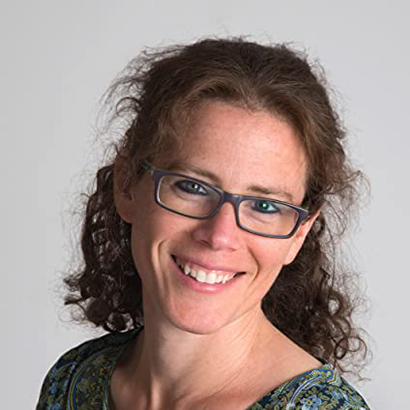
Dr Catherine Rottenberg
Catherine is Associate Professor in American and Canadian Studies in the Faculty of Arts. Her areas of expertise include 20th-century American literature, with particular interest in comparative African-American and Jewish-American literary studies; multi-ethnic US literature, Harlem Renaissance studies; ‘passing’ narratives; as well as feminist, critical race, and urban theory.
Her recent research has focused on the rise of neoliberal feminism in the US. Catherine can speak about the effect of the pandemic on our human rights as governments introduce lockdown measures.

Professor Paul Crawford
Paul Crawford is Professor of Health Humanities, as well as Director for the Centre for Social Futures at the Institute for Mental Health, and Co-Director of Nottingham Health Humanities Research Priority Area. He is a Fellow of the Royal Society of Arts, Fellow of the Academy of Social Sciences, and Fellow for the Royal Society of Public Health.
As the founding father of the new, global and rapidly developing field of health humanities, Professor Crawford leads various research in applying the arts and humanities to inform and transform healthcare, health and wellbeing. His research focuses include social and cultural perspectives in mental health; language, narratives and communication in mental health and healthcare in general; and mental health in community and primary care settings.
Paul can discuss Florence Nightingale’s legacy to nursing and her anti-infection theories, as well as her thoughts on handwashing and fresh air.
Stephanie Coen is Assistant Professor in the School of Geography. She is a critical health geographer with an overarching concern for how everyday social and material contexts matter for health and health equity. Her current focus is on the role of place in the gendering of physical activity.
Stephanie is committed to making research more applicable to everyday life. She is available for comment on the mental health issues arising from self-isolation, exercise withdrawal, and potential effects of the crisis on people with OCD spectrum disorders.
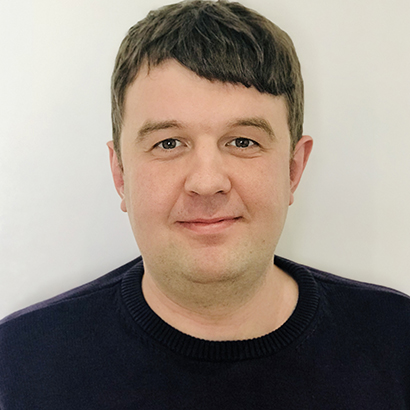
Dr Chris Coleman
Dr Chris Coleman is an Assistant Professor of Infection Immunology in the Department of Life Sciences. He has been involved in coronavirus research since 2012.
Up until now, his research has focused on the highly pathogenic MERS-CoV. He has studied many different aspects of MERS-CoV biology, including the functions of viral proteins, drug discovery and testing vaccines. He is able to comment on the biology of coronaviruses, strategies for treatments and vaccines (particularly in respect to the strategies and response after the MERS-CoV outbreak) and the scientific response to an outbreak.
A Chartered Educational Psychologist, registered with the Health and Care Professions Council; Senior Educational Psychologist, Nottingham City Council. Anthea's professional career began with teaching roles, beginning in Hackney. She has practised as an educational psychologist in a number of Local Authorities in roles including as Service Manager. Specialisms have included working with deaf children; mental health in schools; early years; school improvement; organisational change; and supporting children excluded from school.